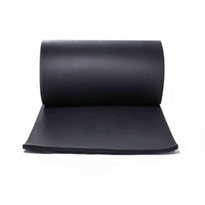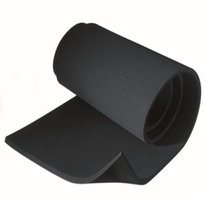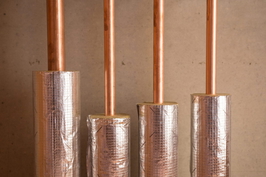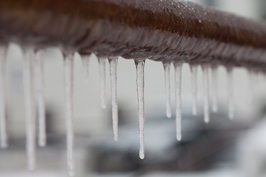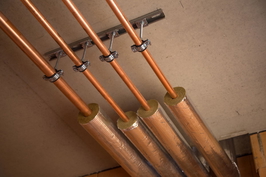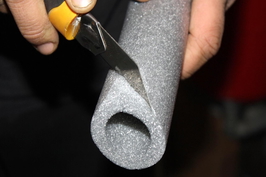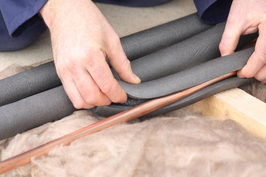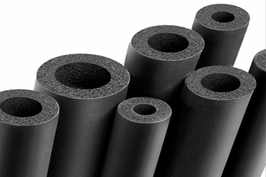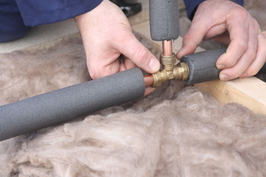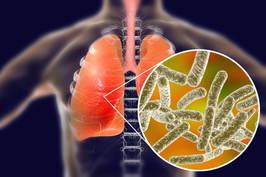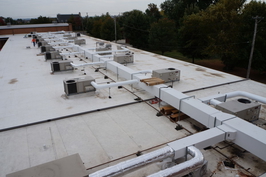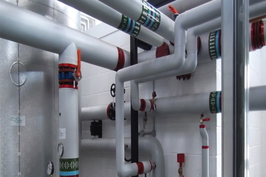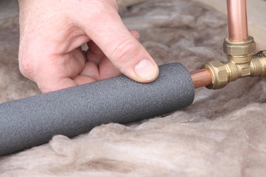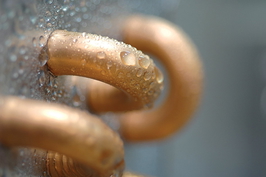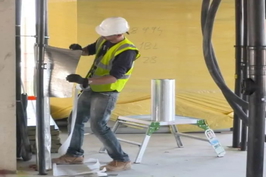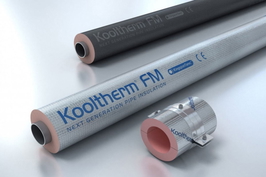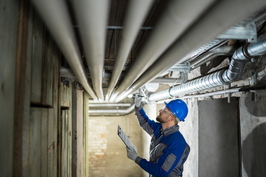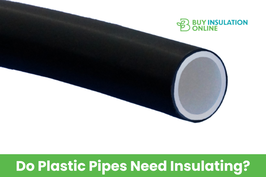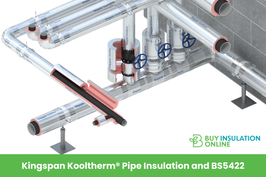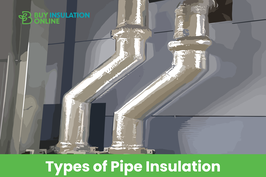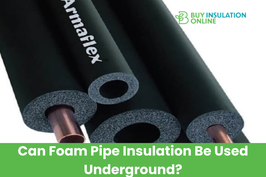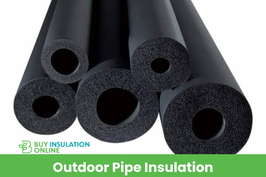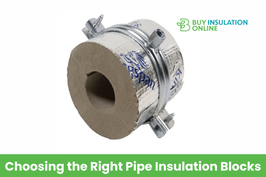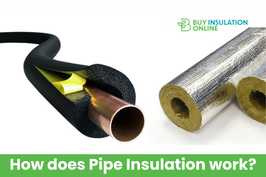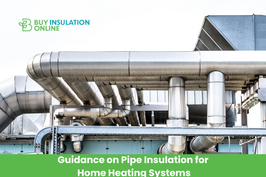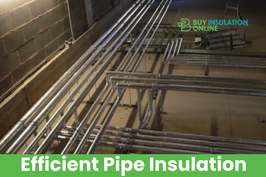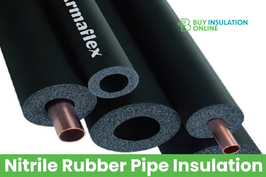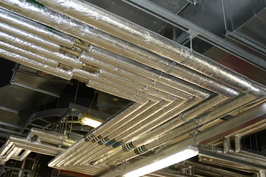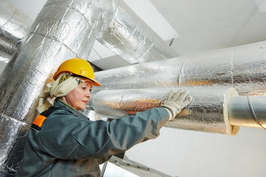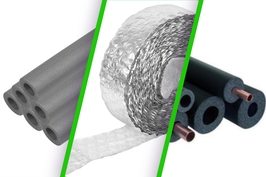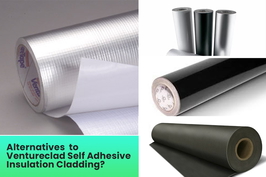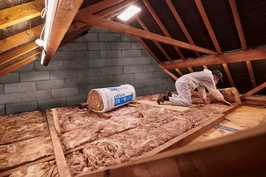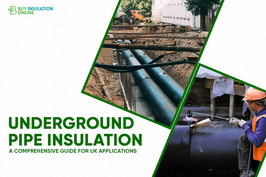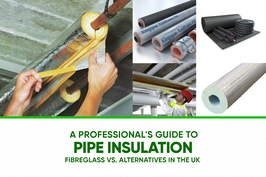Gas Pipe Insulation
Gas pipe insulation involves applying specialized materials such as polyurethane foam, fiberglass, or mineral wool around gas pipelines to minimize heat loss, enhance safety, and improve efficiency in industrial and commercial systems. Proper installation requires accurate measurement and cutting of insulation, as well as securing it correctly, all while adhering to safety precautions like wearing protective gear. This process supports environmental objectives by reducing energy consumption and extending the lifespan of pipelines. Further details illustrate how different materials and application techniques optimize both safety and sustainability.
Types of Gas Pipe Insulation Materials
Selecting the appropriate gas pipe insulation material requires careful consideration of the specific environmental and operational conditions, as each type offers distinct advantages tailored to particular applications. Each material's compatibility with the pipe's operating temperature and exposure to environmental factors is crucial for optimal performance. Polyurethane foam provides high thermal efficiency and moisture resistance, making it suitable for refrigeration and chilled water systems where maintaining low temperatures is critical. Polyisocyanurate foam boasts superior thermal resistance and is often utilized in high-temperature industrial environments, where heat retention and energy efficiency are priorities. Fiberglass insulation combines good heat resistance with durability, making it ideal for hot piping and environments prone to corrosion. Rubber insulation is selected for its flexibility, accommodating pipes that experience vibration or movement. Meanwhile, mineral wool insulation offers exceptional fire resistance and withstands extreme temperatures, which are essential factors in industrial settings requiring high safety standards. Additionally, when selecting insulation, considering its weatherproof and UV-resistant properties is essential for outdoor applications to ensure long-term performance and system integrity.
Benefits of Insulating Gas Pipes
Insulating gas pipes offers a wide range of operational advantages that directly enhance system efficiency and reliability. By reducing heat loss, insulation helps maintain consistent temperatures, which improves the performance of heating systems and prevents unnecessary energy consumption. This results in notable energy savings and lowers overall operational costs, while also reducing stress on equipment and extending its service life. Energy efficiency improvements are particularly important in industrial sectors, where process stability is critical. Proper insulation plays a vital role in industrial process control by keeping temperatures steady. This is a critical factor for managing complex and sensitive operations. Financially, insulating pipes decreases energy bills and provides a rapid return on investment through reduced maintenance requirements and increased efficiency. From an environmental perspective, insulated pipes contribute to lower greenhouse gas emissions by decreasing energy demand, thereby supporting UK sustainability initiatives. Additionally, insulation enhances comfort levels, prevents freezing in cold climates, and ensures safer, more dependable gas delivery for both residential and commercial applications. Proper pipe insulation can also reduce noise transmission, contributing to a more comfortable environment around pipelines.
Installation Tips and Safety Precautions
Preparing for the installation of gas pipe insulation is a vital step that ensures safety, efficiency, and the insulation’s effectiveness. It begins with gathering all necessary materials, such as pipe insulation wrap, scissors, and securing tape or wire.
It's important to ensure that the work area is free of debris and free from obstructions, with adequate ventilation in place.
Accurate measurement of pipe diameter and length is essential. The insulation should be cut precisely to fit snugly around pipes, fittings, and valves.
Workers must wear protective gear, including gloves, safety glasses, and masks, to prevent exposure to insulation particles.
Maintaining good airflow and keeping heat sources away from insulation are crucial to prevent accidents.
Caution must be exercised around electrical components or chemicals. Proper wrapping, securing, sealing gaps, and inspecting the completed work are key steps to ensure safety and optimal performance.
Additionally, selecting innovative installation hardware like FlipFix access panels can streamline the process and enhance safety during installation.
Common Applications and Use Cases
Gas pipe insulation is widely utilized across a range of industries in the UK, each with specific requirements dictated by operational processes and safety standards. In oil and gas refining, insulation plays a crucial role in maintaining temperature stability, helping to prevent heat loss or gain during vital chemical reactions.
Power generation facilities rely on insulated gas pipes to optimize efficiency by minimizing thermal energy loss. Chemical manufacturing processes demand precise temperature control, making insulation essential for ensuring process consistency and adhering to safety protocols.
Petroleum processing benefits from insulation that protects pipes from environmental influences, thereby maintaining stable operating temperatures.
In the natural gas distribution sector, insulation significantly reduces the risk of leaks and facilitates the safe, long-distance transportation of gas.
Additionally, proper insulation materials are critical to ensure compliance with safety regulations and to prevent issues such as condensation or freezing, which could disrupt operations or cause damage.
These applications collectively enhance energy efficiency, decrease environmental impact, bolster safety by preventing issues such as freezing or pipe ruptures, and prolong the lifespan of piping systems. Such functions are fundamental to the smooth operation and safety of industrial infrastructure across the UK.
Environmental and Long-Term Considerations
Have you considered the long-term environmental impacts of gas pipe insulation, which go beyond immediate operational benefits to influence sustainability and ecological health?
Insulation materials such as fiberglass and mineral wool help reduce greenhouse gas emissions by lowering energy consumption and harmful carbon emissions, equating to the benefits of planting billions of trees. Some of these materials are recyclable, which decreases landfill waste; however, their production involves the use of fossil fuels, raising environmental concerns. This makes the selection of eco-friendly materials vital for sustainable practices. Durable outdoor insulation extends the lifespan of pipes and reduces material degradation, thereby supporting sustainable practices. Additionally, considering the recycled content of insulation products is crucial, as higher recycled material percentages further reduce environmental impact and promote a circular economy.
Proper end-of-life management of insulation materials is essential to prevent environmental contamination.
It is also important to be mindful that pipe construction activities can cause habitat disruption or water pollution if not carefully managed.
By choosing environmentally conscious insulation materials and adhering to best practices in installation and disposal, the long-term ecological impact can be minimized.
This approach fosters a more sustainable way of maintaining gas infrastructure, aligned with broader efforts to protect natural resources and promote ecological health across the UK.
Conclusion
Gas Pipe Insulation
Proper insulation of gas pipes enhances safety by reducing heat loss, preventing condensation, and minimising corrosion risks. Selecting appropriate materials, following correct installation procedures, and adhering to safety precautions ensure effective insulation performance and compliance with regulations. It is important to consider environmental impacts and long-term durability to optimise investment, thereby reducing energy consumption and maintenance costs. Implementing comprehensive insulation practices results in safer, more efficient gas pipe systems, supporting operational reliability and environmental responsibility throughout their service life.












